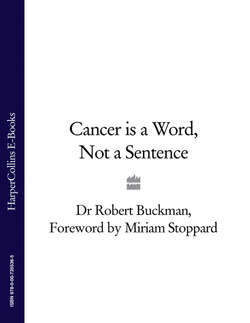Читать книгу Cancer is a Word, Not a Sentence - Miriam Stoppard - Страница 17
Treatment: is there a ‘best kind?’
ОглавлениеTreatment plans are often confusing.
The problem is that each of the four types of treatment does a different job—and in some situations you need several types of treatment to deal with different aspects of the cancer.
That fact by itself often causes some confusion.
Some patients are confused about why they need any treatment after surgery, some are confused about why they need, say, two types of therapy (maybe local radiotherapy and chemotherapy), and some patients become worried if they are not being given all four types of treatment and want to know if they are being short-changed (‘Am I getting second-class treatment? Does the team know something about my condition that they’re not telling me?’). Others may think that they are being over-treated and feel that they don’t really need all the treatment methods that are being used.
To be honest, it is confusing.
It is also confusing that there isn’t a single ‘best type’ of treatment for each site of cancer—for example some cancers of the breast need chemotherapy and radiotherapy, some need hormonal treatment, and so on.
The reason—which won’t be a surprise to those of you who have read the earlier parts of this book—is that cancer is not one single disease, and therefore there is no one single treatment. Unlike shower caps, for example, one size does not fit all!
Each of the cancers may need treatment at many different stages of development. Furthermore, patients are not all the same—some are young, some are old, some have other medical conditions, some don’t—and that means that the risks and the side effects of the different treatment methods may be quite different in Mrs Smith than they are in Mr Brown.
So all those different factors—the type of cancer, the stage, the age and medical state of the patient—create a large number of different combinations. Hence the best or most appropriate type of treatment will to some extent be individualised to you, and will depend on the tumour and its stage, and your own medical state.
The members of your medical team will match you up with the therapy, or combination of therapies, that offers you the highest chance of success with the lowest chance of side effects. That means that even if you have friends and neighbours with the same diagnosis, they may be receiving different types of treatment from you. If you have cancer of the breast, say, there may be reasons that hormone tablets are not recommended to you, while they are for your neighbour who also has breast cancer.
This section will set out some of the criteria by which these treatment options are recommended.
What’s the best kind of cancer treatment? It completely depends on your particular situation. Because there are hundreds of different clinical situations—depending on the type of the cancer, the stage, the part of the body that the tumour is in and so on—there are hundreds of facts that need to be considered in the selection of treatment for any one person.
In your case, your medical team may recommend one, some, or even all of these treatment methods. That is why it is extremely important that you discuss the individual treatment approach with your medical team.
